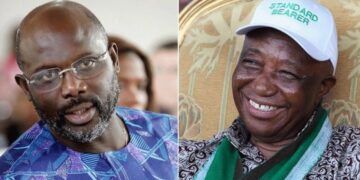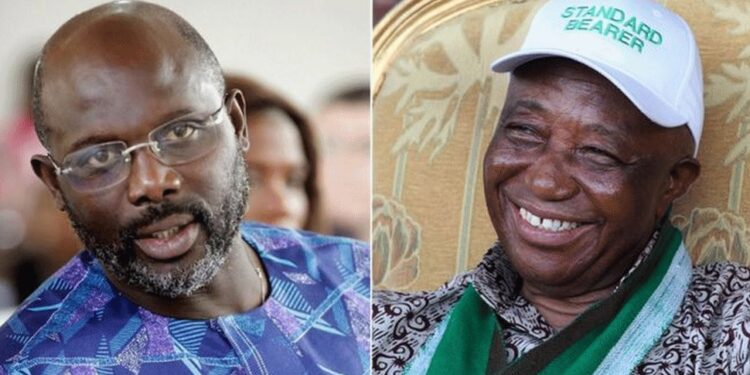By John Ikani
Liberian President George Weah gracefully acknowledged defeat late Friday, yielding to provisional results from the runoff vote that saw challenger Joseph Boakai secure victory by a slim margin of just over one percentage point.
With 99.58% of ballots tallied from Tuesday’s election, Boakai emerged as the frontrunner, garnering 50.89% against Weah’s 49.11%.
The outcome marked a significant turnaround from the electoral dynamics six years ago when Weah comfortably surpassed Boakai in the second round.
“The Liberian people have spoken, and we have heard their voice,” stated Weah in a national address, acknowledging Boakai’s unassailable lead. “I urge you to follow my example and accept the result of the elections,” he added, projecting optimism for a political resurgence in 2029.
Weah’s concession speech, delivered even before official results were declared, arrives amidst mounting apprehensions about the erosion of democracy in West Africa. The region has witnessed a series of military coups in recent years, with Gabon experiencing one earlier this year following a presidential election.
Weah, a 57-year-old former international soccer star, assumed the presidency in 2017 with promises to combat poverty and spearhead infrastructure development. His victory marked the first peaceful transfer of power in Liberia since the cessation of back-to-back civil wars between 1989 and 2003, which claimed the lives of approximately 250,000 people.
Nevertheless, Weah faced criticism for purportedly falling short on crucial campaign commitments, particularly in combating corruption and ensuring justice for conflict victims.
Tuesday’s tightly contested runoff followed a first-round vote last month, where Weah secured 43.83% of the votes, and Boakai 43.44%, leading both candidates to the runoff. Boakai gained subsequent endorsements from the third, fourth, and fifth-place candidates.
At 78, Boakai, the former vice president under Ellen Johnson Sirleaf, Africa’s first democratically elected female leader, held an advantageous position in the election.
Many Liberians, disillusioned by unmet promises of economic improvement and corruption eradication under Weah’s administration, viewed Boakai as a credible alternative, noted Ryan Cummings, director of Africa-focused Signal Risk consulting.
The current runoff outcome underscores a palpable “public disaffection” with Weah’s governance, with Boakai emerging as a viable choice for many Liberians, according to Cummings.
Weah, the sole African recipient of international soccer’s Ballon d’Or, enjoyed an illustrious career as a forward for clubs such as Paris Saint-Germain, AC Milan, Chelsea, and Manchester City during his 18-year tenure. His 23-year-old son, Tim, now contributes to Serie A club Juventus and the U.S. national team.




































